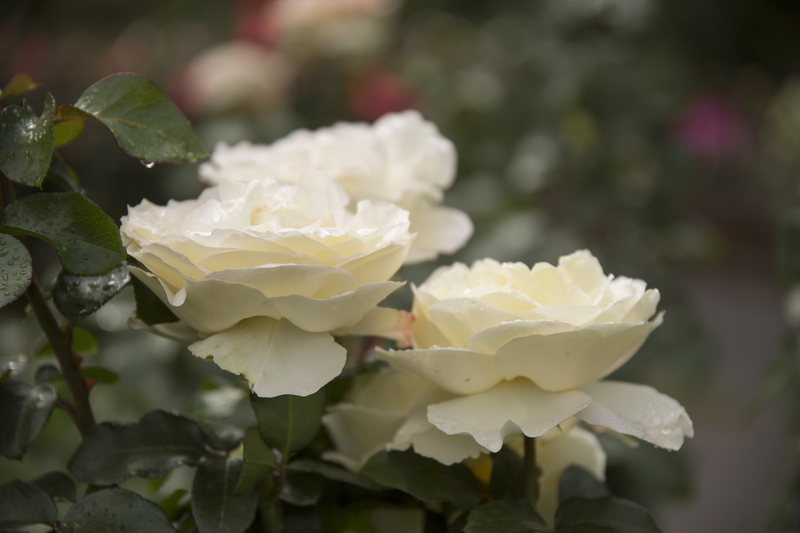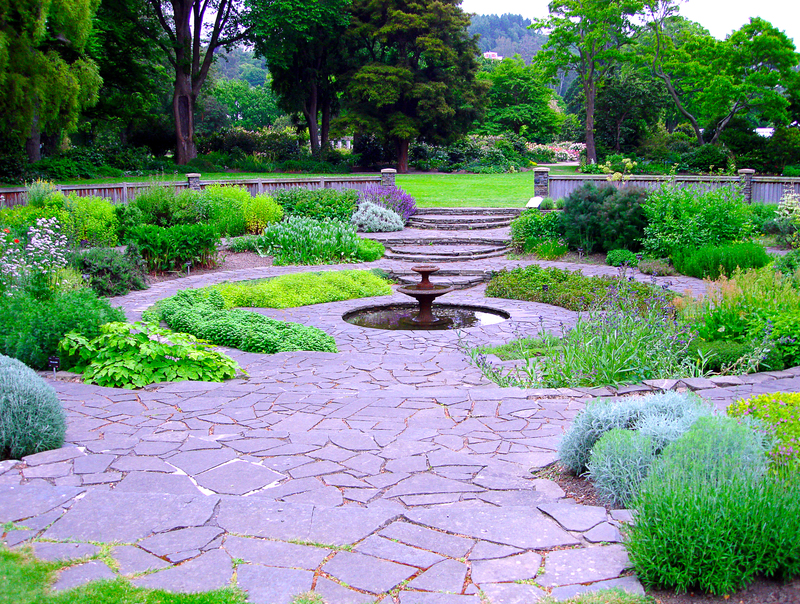Essential Advice: 9 Gardening Tips for Beginners
Posted on 06/06/2025
Essential Advice: 9 Gardening Tips for Beginners
If you've ever dreamed of creating your own flourishing garden haven, you're not alone. For many gardening novices, taking the first steps toward growing healthy plants can feel both exciting and overwhelming. Luckily, with a bit of knowledge and the right gardening advice, you can transform even the smallest backyard or balcony into a green oasis. Whether you're planting flowers, vegetables, or simply want to nurture lush greenery, these essential gardening tips for beginners will set you on the path to success.

Why Start Gardening: The Benefits for Beginners
Before diving into the top gardening tips, it's important to understand what gardening has to offer. Beyond providing fresh produce, a well-kept garden can elevate your outdoor spaces, improve your mental health, and connect you with nature. Studies show that gardening can help reduce stress, promote physical activity, and foster eco-friendly habits. Whether your passion is for blooming roses, crisp lettuce, or simply enjoying the outdoors, beginner gardeners will find immense rewards in cultivating their own patch of earth.
9 Essential Gardening Tips for Beginners
- Start Small and Simple
- Pick the Right Location
- Know Your Soil and Prepare It Well
- Choose Beginner-Friendly Plants
- Learn Proper Watering Techniques
- Understand Sunlight Requirements
- Feed Your Plants the Right Way
- Stay on Top of Weeding and Pest Control
- Keep Learning and Have Patience
1. Start Small and Simple
For many first-time gardeners, the urge to plant an extensive array of flowers or vegetables is strong. However, one of the most important gardening tips for beginners is to start small. Focus your efforts on a manageable section of your garden - such as a few raised beds, pots, or a modest patch of soil - until you gain confidence and experience.
- Avoid overwhelming yourself with too many tasks.
- Keep your plant selection limited and manageable.
- Grow a garden you can consistently maintain and enjoy.
This approach allows you to investigate what works best in your gardening environment and learn from any missteps along the way.
2. Pick the Right Location
Location, location, location! Even the best gardening techniques can't compensate for a poor spot. Spend time observing your outdoor space before selecting where to cultivate your new garden.
- Look for areas that receive at least six hours of sunlight per day, which most vegetables and flowers need to thrive.
- Consider proximity to your house for easy watering and monitoring.
- Avoid low-lying spots that may collect standing water after rain.
By choosing the right garden location, you'll increase your chances for a successful and thriving beginner garden.
3. Know Your Soil and Prepare It Well
Another fundamental tip in garden success is understanding and preparing your soil. Healthy soil is the foundation for robust plant growth.
- Test your soil to determine pH and nutrient levels. Many home improvement stores sell easy-to-use soil testing kits.
- Amend your soil by adding organic material such as compost, aged manure, or peat moss to improve structure, drainage, and fertility.
- Turn the soil using a fork or spade to aerate it before planting, breaking up clumps and removing rocks or debris.
For those using containers or raised beds, invest in a high-quality potting mix. Good soil management is among the most reliable gardening tips for beginners hoping for vibrant, long-lived plants.
4. Choose Beginner-Friendly Plants
Selecting the right plants makes a huge difference, especially if you're new to gardening. Some varieties are more resilient and forgiving for novices.
- Vegetables: Lettuce, radishes, beans, and zucchini are easy to grow and mature quickly.
- Herbs: Basil, mint, parsley, and chives thrive indoors or out and require minimal fuss.
- Flowers: Marigolds, sunflowers, pansies, and petunias add color and tend to be hardy.
Research your local growing zone to help choose plants that are well-suited to your climate. Nurseries and garden centers often display selections that are ideal for first-time gardeners in your area.
5. Learn Proper Watering Techniques
A common mistake for beginners is to overwater or underwater their plants. Watering correctly is vital for healthy roots and vigorous growth.
- Water early in the day to minimize evaporation and prevent disease.
- Make sure the soil is moist but not soggy; stick your finger an inch into the soil to test moisture levels.
- Use mulch to help retain moisture and reduce the frequency of watering.
- Water at the base of plants rather than overhead to avoid fungal diseases.
Different plants have unique water needs. As you expand your gardening skills, take note of your plants' requirements and adjust your watering regimen accordingly.
6. Understand Sunlight Requirements
All plants have preferred sunlight needs. Recognizing and meeting these requirements is key for a productive garden, especially for beginner gardeners.
- Full sun: Six or more hours of direct sunlight. Ideal for most vegetables and many flowers.
- Partial sun/partial shade: 3-6 hours of sunlight each day. Great for leafy vegetables and some blooming plants.
- Shade: Less than 3 hours of direct sunlight. Certain ferns, hostas, and wildflowers perform best here.
Observe your garden throughout the day to map shaded and sunny spots. Match plant choices to those microclimates for a lush, successful garden.
7. Feed Your Plants the Right Way
Like all living things, plants need proper nutrition to grow. One of the most overlooked gardening tips for beginners is learning about fertilization.
- Organic fertilizers like compost, fish emulsion, or manure build soil structure and provide long-term nutrition.
- Slow-release synthetic fertilizers are convenient and can help supplement nutrients quickly.
- Don't over-fertilize! This can harm your plants more than it helps. Always read package instructions and use the recommended amount.
A healthy feeding schedule results in better blooms, larger harvests, and increased resistance to pests and diseases.
8. Stay on Top of Weeding and Pest Control
Nothing can derail a garden faster than uncontrolled weeds and pests. Consistent maintenance protects your hard work and ensures healthy plants.
- Weed regularly, especially when plants are young and vulnerable. Pull weeds by hand or use a hoe, making sure to remove roots.
- Mulch between rows to suppress weed growth and maintain soil moisture.
- Monitor for pests such as aphids or caterpillars. Remove them by hand or use eco-friendly methods like neem oil or insecticidal soap.
- Encourage beneficial insects, such as ladybugs and bees, which help control harmful pests naturally.
Early intervention is the best strategy. As your gardening knowledge expands, you'll develop keen observation skills and faster solutions to common issues.
9. Keep Learning and Have Patience
No list of top gardening tips for beginners would be complete without emphasizing continuous learning and patience.
- Read books and gardening blogs to discover new techniques.
- Join local gardening groups for advice, seed swaps, and encouragement.
- Learn from your mistakes; not every plant will thrive, and that's okay!
- Document your garden's progress with notes or photos to track what works and what doesn't.
Gardening is a journey, not a destination. Over time, your garden will evolve, and so will your skills. Patience and observation are two of the most valuable traits any gardener can cultivate.
Extra Tips for New Gardeners
- Invest in quality tools: A sturdy trowel, gloves, and pruners can make all the difference.
- Safety first: Use sunscreen, wear a hat, and stay hydrated while working outdoors.
- Plan for pollinators: Planting native flowers supports bees and butterflies, boosting your garden's productivity.
- Rotate crops each season: This helps prevent soil nutrient depletion and reduces disease risk.
- Celebrate small victories: Every new bloom or harvest is a step forward!

Common Mistakes to Avoid as a Beginner Gardener
As you explore beginner gardening advice, beware of these frequent errors:
- Planting too much, too soon.
- Neglecting regular watering or overwatering.
- Ignoring light requirements for specific plants.
- Letting weeds and pests take over.
- Failing to amend and care for soil each season.
Avoiding these pitfalls will put you on a fast track to a happy, productive garden!
Final Thoughts: Embark on Your Gardening Journey
Starting a garden can seem daunting, but with the right guidance and a touch of patience, anyone can become a successful home gardener. Remember, the most fruitful gardens spring from learning, observation, and a willingness to adapt. By following these 9 essential gardening tips for beginners, you'll be set to cultivate beautiful blooms, harvest fresh produce, and enjoy all the physical and mental benefits that gardening brings.
So, gather your tools, choose your favorite plants, and enjoy the rewarding journey of nurturing your first garden. Happy gardening!
Latest Posts
Building a Whimsical Child-Friendly Garden Adventure
Nurturing Nature and Dogs: 20 Gardening Tips for Pet Lovers
Designing a Zen Garden: Your Pathway to Outdoor Peace

